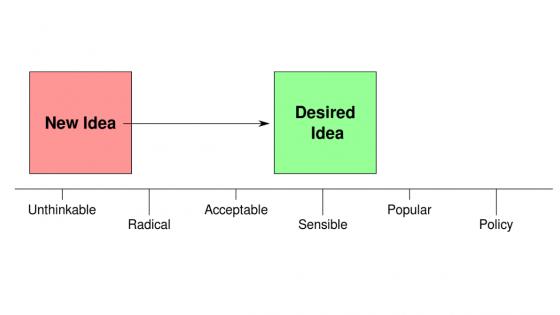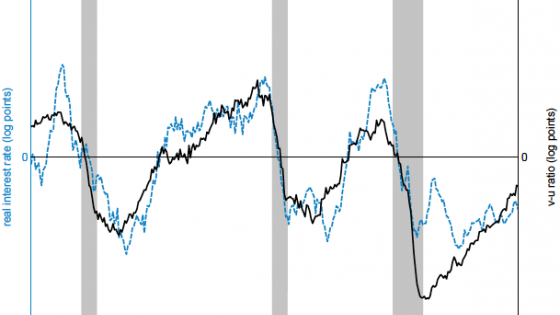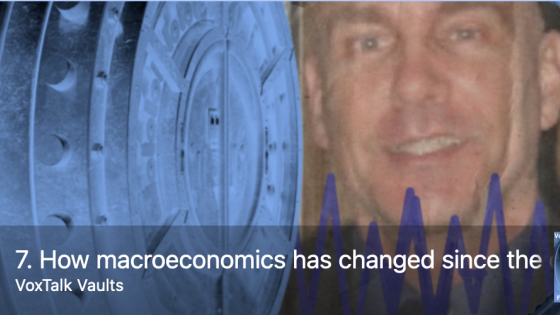First posted on:
Roger Farmer's Economic Window, 19 April 2018
The National Institute of Economic and Social Research (NIESR) Rebuilding Macroeconomics project is stirring a great deal of controversy. And that’s a good thing. I am part of the management team, but I can only speak for myself here. In my opinion, we should be generating dialogue between heterodox non-mainstream groups and conventional macroeconomists. Mainstream economists and heterodox economists alike should each stop being so certain that they are guardians of the sole correct approach.
Our goal is not to fund a set of projects that are non-intersecting with the mainstream. It is to move the Overton window. We seek risky projects that would be unlikely to be funded by mainstream funding agencies. Sometimes this means that the projects we fund will overlap with existing agendas but originate from communities of scholars that are non-mainstream. Sometimes it means they follow approaches that originate in other social sciences and are not currently part of economics.

We have funded two projects so far. One is an example of the first kind, which involves research that has some overlap with existing mainstream research. The other is an example of a project that originates from social psychology and that has little or no overlap with existing research. Our management team includes a complexity theorist, an anthropologist and a social psychologist. Economists have historically maintained an ideological purity that borders on arrogance. I think it’s time for cross-fertilization of ideas.
The internet discussion on the project we are funding by Özlem Onaran is, by this criterion, already showing signs of success. There is a range of heterodox economics that stretches from post-Keynesians through agent-based models, Modern Monetary Theory, institutional economics, etc., to approaches using indeterminacy and sunspots of the kind I have personally worked with. This latter example, sunspot theory, is a fundamental building block of modern macroeconomics that is influential, but only occasionally invited to the table at NBER macroeconomics conferences. Other approaches like behavioural macroeconomics were once fringe but are now mainstream.
It would be naive, and obviously false, to think that by including a post-Keynesian group in the dialogue, Rebuilding Macroeconomics will lead to research on topics that are excluded entirely by the mainstream. But the approach followed by a post-Keynesian economist like Özlem is unlikely to be a mirror of that followed by mainstream economists like Matthias Doepke and Michèle Tertilt.
In the mainstream, it would be difficult (but admittedly not impossible) to bring in ideas from mainstream sociology. We are still, after all, wedded to the 19th-century notion that individual preferences are independent of social trends. The economics of the family, as Doepke and Tertilt refer to it, or feminist economics, the label preferred by the heterodox, will, I hope, lead to a breaking down of some of the barriers that were erected by economists in the 19thcentury when we formalized the welfare theorems.
I have no illusion that all of the projects we fund will succeed in leading to a new ‘policy-relevant macroeconomics’. But that is not my expectation. Our remit is to take risks. By funding projects from people or groups that inject new genes into the pool, I hope we will seed the development of ideas that might otherwise take much longer to emerge. Many of these projects will likely fail. But there is a widespread feeling amongst the general public, those who pay for our research, that mainstream macroeconomics has itself failed in a spectacular way. While I do not fully subscribe to that view, I do feel that the existing institutional structures have led to the dominance of a small subset of ideas whose success has depended more on historical circumstance than to any obvious claim to truth.
I see one of my major responsibilities in my roles as a member of the Rebuilding Macroeconomics management team, a co-leader of the Rebuilding Macroeconomics Instability Hub, and as Research Director at National Institute of Economic and Social Research, to contribute meaningfully to moving the Overton window. We are engaged in a non-experimental science that sometimes needs to be shaken up a little by bringing in fresh approaches. Let the debate continue.





